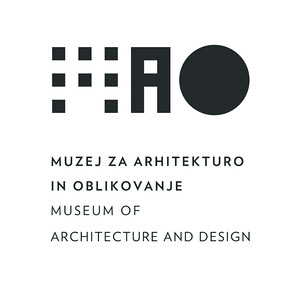November 14, 2019–February 9, 2020
Museum of Architecture and Design (MAO), Ljubljana
Rusjanov trg 7
SI- 1000 Ljubljana
Slovenia
Hours: Tuesday–Sunday 10am–6pm
T +386 1 548 42 70
mao@mao.si
Curator: Thomas Geisler
Assistant Curator: Aline Lara Rezende
Austrian design curator and cultural producer Thomas Geisler has been appointed as the curator of the 26th Biennial of Design (BIO 26), to be held between November 14, 2019 and February 9, 2020, in Ljubljana.
Familiar with working at the cross section of cultural production and design industries, Thomas Geisler brings his expertise to the newly established collaboration between the Biennial and the Centre for Creativity, managed by the Museum of Architecture and Design (MAO), who is also an organiser of the BIO.
“We invited Thomas to curate BIO because of his exceptional knowledge and at the same time constant curiosity about design, because of his passion to explore the triangle of learning-design-production and because of his experience in curating complex design events. BIO has established itself as an international platform for research and experimentation in design, and I am sure that in this mission, Thomas will take it another step forward.” –Matevž Čelik, MAO director
Geisler curated international exhibitions for the Vienna Biennale (2015 and 2017), London Design Biennale (2016 and 2018), Vitra Design Museum, and many others. He is currently the director of the Werkraum Bregenzerwald—the crafts and trade initiative of the Bregenzerwald region—where he leads exhibitions and other initiatives, overlapping innovative craftsmanship, design and architecture. Before his position in Werkraum, Geisler was the curator and head of the Design Collection at the MAK Vienna. He played a pivotal role in establishing the Victor J. Papanek Foundation at the University for Applied Arts Vienna and is a co-founder of Vienna Design Week. Next year, he starts in his new post as the director of the Museum of Decorative Arts – Dresden State Art Collections (SKD).
“I am excited to work with the BIO team for their next edition. Ljubljana’s design biennial is set as an open platform for experimentation and cultural production, and I am really interested in confronting this experimental concept with a more practical approach, observing where the current shifts in design could tackle one of the biggest challenges of our time: information.” –Thomas Geisler
Geisler will work alongside Vienna-based curator, designer and journalist Aline Lara Rezende, who has been appointed as the assistant curator. Together, they will curate exhibitions, commissions and events in the frame of the Biennial.
Rezende previously worked with Paola Antonelli at MoMA, New York, in the pioneer department, known as MoMA R&D—a curatorial driven initiative that, among other objectives, explores the potential and responsibility of museums as public actors, with the vision of establishing cultural institutions as the R&D departments of society. She has worked for The National Art Center, Tokyo; the Museum of Contemporary Art, Tokyo; Yerba Buena Center for the Arts, San Francisco; the Sao Paulo Biennale; and collaborating with the Vitra Design Museum for the exhibitions Making Africa – A Continent of Contemporary Design and Hello, Robot!. She is the co-founder of SALOON Wien, a network for women working in the arts in Vienna. As a journalist, Rezende writes critically on the crossroads of design and cultural shifts. Her writings have appeared in design magazines such as Damn and Metropolis, among other international outlets.
BIO 26 curatorial framework will be announced early next year.
About BIO
BIO – The Biennial of Design in Ljubljana is organised by Museum of Architecture and Design (MAO), and is an international platform for new approaches in design. BIO was founded in 1963, making it the first design biennial in Europe. Today, BIO is structured as a long-term collaborative process, where teams of designers and multidisciplinary agents develop alternatives to established systems. BIO works as a testing ground, where design is employed as a tool to question and improve our daily life, among different and multidisciplinary design approaches that touch systems, production, services, scientific research, humanistic issues and more.


